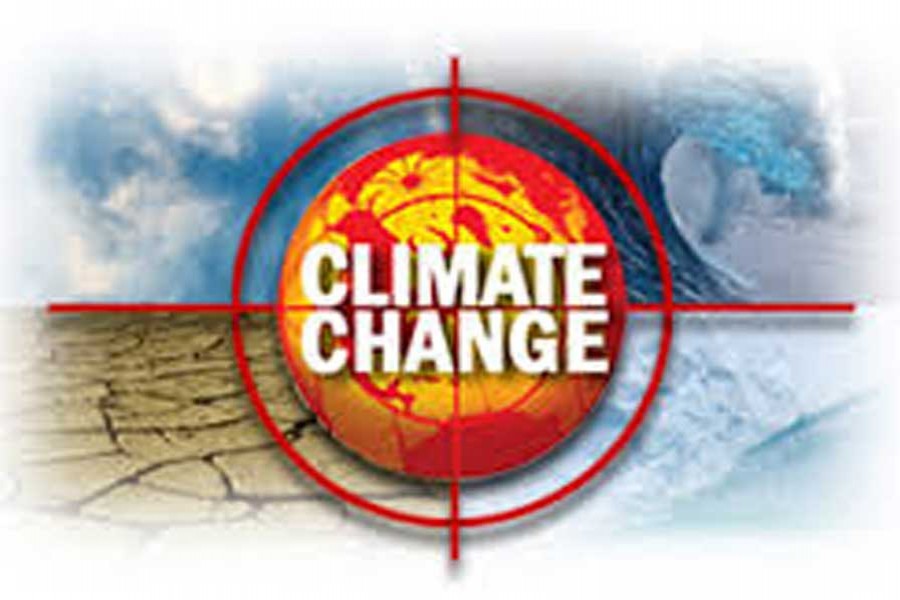The recently held Madrid Climate Meeting marked 25 years of the Conference of the Parties (COP), a UN Framework Convention for Climate Change signed in 1992 by 165 signatory nations. Despite agreement that the planet Earth is facing a "climate emergency," the COP25, which was billed as the Action COP, delayed any real climate action. Indeed, after the first few COPs that were constructive and hopeful, the fossil fuel producers such as the United States, Australia, Saudi Arabia, Kuwait, Brazil and Russia and the carbon-emitting countries captured the COP process. The apparent actions from the processes are more delays.
The long-term goal of the Paris Agreement (COP2015) is to keep the increase in global average temperature well below 2 degree celsius above the pre-industrial level and to limit the increase to 1.5 degree celsius. This urgent action to combat climate change is intrinsically linked to the 2030 Agenda for Sustainable Development. The spirit of the Paris Agreement is now slowly eroding from one COP to another. With no tangible action, the planned extractions of coal, oil and gas are enough to blow past the 1.5 degree celsius target or even 2.0 celsius by 2030.
The harsh truth is that the world is getting increasingly warmer, and extreme weather events such as glacier meltdown, forest fires, flood, cyclones etc., are on the rise globally. The climate impacts and anxiety are felt by all, particularly the world's most vulnerable and innocent people being at the receiving end as victims. Island countries like the Maldives, Tuvalu and Kiribati are sinking due to rising sea level. The Intergovernmental Panel on Climate Change has identified Kiribati as one of the six Pacific Island countries most threatened by rising sea level, and thus would likely become uninhabitable as early as 2050.
Rising sea level, drought and crop failure are expected to force tens of millions of people to migrate within their countries as "internal climate migrants" by 2050. A2018 World Bank study found that 143 million people across South Asia, sub-Saharan Africa and Latin America are at risk of the effects of "slow-onset" of climate change. "Every day, climate change becomes a more urgent economic, social, and existential threat to countries and their people," observes World Bank CEO Kristalina Georgieva in her introduction to the 2018 Study.
With the climate crisis worsening and the declaration of climate emergency by the climate scientists, the climate-anxiety - for instance, the fear of sea level rise, the horrific forest fires in Australia, displacement due to disasters, loss of homes and livelihoods, stress, helplessness, a sense of loss of control and the potential for a catastrophic future - has become prevalent beyond the physical world into mental health and well-being, according to a recent report issued by the American Psychological Association (APA). The report urges to address the core causes of and solutions for the changing climate, and building and supporting psychological resilience.
In Bangladesh, climate-anxiety is very evident in physical, economic, social and existential terms. Prime Minister Sheikh Hasina, in a recent statement in Parliament, said that some 40 million people from 70 upazilas and 19 districts of the country are at the risk of displacement due to climate change (recent revised estimates, however, put the figure between 15 and 20 million). The PM reiterated her commitments to fighting against climate disasters, giving vivid descriptions of the various impacts such as higher average temperature by one degree celsius in May and 0.5 degree celsius in November, increase in average rainfall and other weather events, outbreak of different insect-borne diseases, and increased salinity of river water up to 100 km from the coastline during summer threatening life and well-being of the people.
The PM was also assertive in talking about various measures taken by the government, including the Bangladesh Climate Change Strategy and Action Plan, to increase the national capacity to combat the adverse impacts of climate change. She further demonstrated her fight against climate change at the Global Commission for Adaptation (GCA) held in Dhaka in July 2019 and called on world leaders for further efforts to raise awareness about climate change. The meeting was attended, among others, by GCA Chairman Ban Ki-moon and World Bank CEO Kristalina Georgieva.
Bangladesh has earned reputation for its adaptive climate strategies. However, the government's current approach to coal-fired power generation hurts the environment as it is carbon intensive and thus undermines the Prime Minister's commendable leadership in the global fight against climate change. It is important to realise that the stakes are high for Bangladesh. The national development goals and objectives must be embedded and linked to climate forces for achieving a resilient society. Further, the government should consider investing on climate-related research -- on displacement, livelihoods, and internal climate migration to develop a long-term strategy for resettlement and rehabilitation of the climate migrants in the country.
In addition, in view of increasing climate-anxiety, we all can make small, earth-friendly decisions every day. As recommended by the APA report, small steps such as cut down on use of disposable plastic, use of alternative shopping bags, flying less, visiting local farm markets for foods, choosing more vegetable-based diet, choosing more eco-friendly cleaning products, and simply buying and consuming less by the rich and privileged in the society. If these habits are adopted by everyone in the world, it would make a huge difference creating a large macro change. Climate activist Greta Thunberg, who spoke at COP25 in Madrid said it right: "There is hope. I have seen it. But it does not come from governments or corporations. It comes from the people."
Mohammad Zaman, PhD is an international development/resettlement expert and advisory professor at the National Research Centre for Resettlement, Hohai University, Nanjing, China. [email protected]


